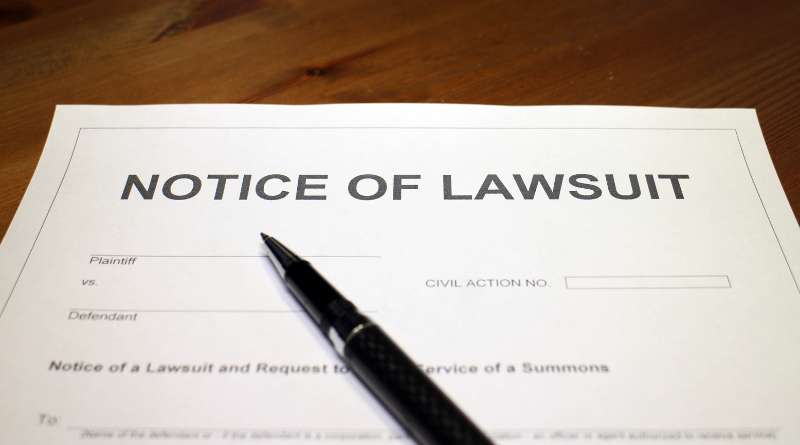Unveiling Hidden Risks: The Paul Mackoul, MD Lawsuit and Its Revelation of Surgery Center Fatalities
Introduction
The medical profession, revered for its role in preserving life, occasionally faces intense scrutiny, particularly when things go awry. The Paul Mackoul, MD lawsuit represents one such instance, shedding light on a critical yet often overlooked aspect of healthcare: the safety and transparency of surgery centers. This in-depth exploration aims to dissect the nuances of the lawsuit, its implications for patient safety, and the broader healthcare context.
Background of the Paul Mackoul, MD Lawsuit
The Case Overview
Dr. Paul Mackoul, a renowned surgeon, found himself at the center of legal turmoil following allegations of unreported fatalities in a surgery center where he practiced. The lawsuit contends that the center, under Dr. Mackoul’s supervision, failed to adequately report patient deaths, thereby breaching medical and ethical standards. This case is significant not only for its direct implications for Dr. Mackoul and the involved facility but also for its broader impact on the healthcare system’s transparency and accountability.
The Implications for Medical Ethics
The allegations against Dr. Mackoul underscore a critical aspect of medical ethics: the obligation to report and learn from every patient outcome, especially fatalities. In the medical field, transparency is not just a legal requirement but a moral imperative, essential for patient trust and the advancement of medical knowledge. This lawsuit serves as a stark reminder of these ethical obligations and their significance in clinical practice.
Patient Safety in Surgery Centers
The Current Landscape
Surgery centers, often seen as convenient and cost-effective alternatives to hospitals, have proliferated over recent years. However, the Paul Mackoul, MD lawsuit brings into question the safety standards and reporting practices of these facilities. Unlike hospitals, which typically have more rigorous regulatory oversight, surgery centers may vary significantly in their safety protocols and incident reporting mechanisms.
Challenges and Risks
The case highlights the potential risks associated with surgery centers, particularly regarding how complications and fatalities are handled and reported. The lack of uniform standards and reporting requirements can lead to underreporting of adverse events, making it difficult to gauge the true safety of these centers. This ambiguity poses a substantial risk to patient safety and undermines the ability of the healthcare system to learn from and prevent future incidents.
Legal and Regulatory Considerations
The Role of Oversight
The lawsuit against Dr. Mackoul brings to the fore the need for robust regulatory oversight in surgery centers. It raises questions about the adequacy of current laws and regulations governing these facilities and whether they sufficiently protect patient safety. This case could potentially act as a catalyst for legal and regulatory reforms, aimed at ensuring higher standards of care and accountability in surgery centers.
Impact on Healthcare Policy
The ramifications of the Paul Mackoul, MD lawsuit extend beyond the immediate legal context, potentially influencing healthcare policy at large. It underscores the necessity for policy interventions to enhance the transparency and accountability of healthcare providers, especially in settings like surgery centers where oversight might be less stringent compared to traditional hospitals.
Ethical and Moral Dimensions
The Duty of Care
At the heart of the Paul Mackoul, MD lawsuit lies the fundamental principle of the medical profession: the duty of care. This principle obligates healthcare providers to prioritize patient safety and well-being above all else. The allegations against Dr. Mackoul and the implicated surgery center suggest a potential breach of this sacred duty, highlighting the need for continual ethical introspection and commitment within the medical community.
The Trust Factor
Trust is the cornerstone of the patient-doctor relationship. Incidents like those alleged in the lawsuit can severely erode this trust, not just in the individuals directly involved but in the healthcare system as a whole. Restoring this trust requires a concerted effort towards greater transparency, accountability, and adherence to ethical standards by all healthcare providers.
Future Directions
Learning from the Past
The Paul Mackoul, MD lawsuit serves as a critical learning opportunity for the medical community. It highlights the need for improved reporting systems, enhanced regulatory oversight, and a renewed commitment to ethical medical practice. By learning from such incidents, the healthcare industry can better safeguard patient safety and uphold the trust placed in it by the public.
Advancing Patient Safety
Moving forward, this lawsuit could catalyze significant changes in how surgery centers are regulated and operated. Emphasizing patient safety through stricter guidelines, regular audits, and transparent reporting practices will be essential. These measures can help ensure that surgery centers are not only convenient and cost-effective but also safe and reliable healthcare options.
Conclusion
The Paul Mackoul, MD lawsuit casts a spotlight on critical issues within the healthcare industry, particularly concerning surgery centers. It underscores the importance of transparency, accountability, and ethical practice in healthcare. As the case unfolds, it will undoubtedly continue to influence discussions and policies aimed at enhancing patient safety and trust in healthcare systems. This lawsuit is not just about one individual or one facility; it’s a pivotal moment for the entire medical community to reflect, learn, and improve.
Also Read: technical masterminds


Post Comment